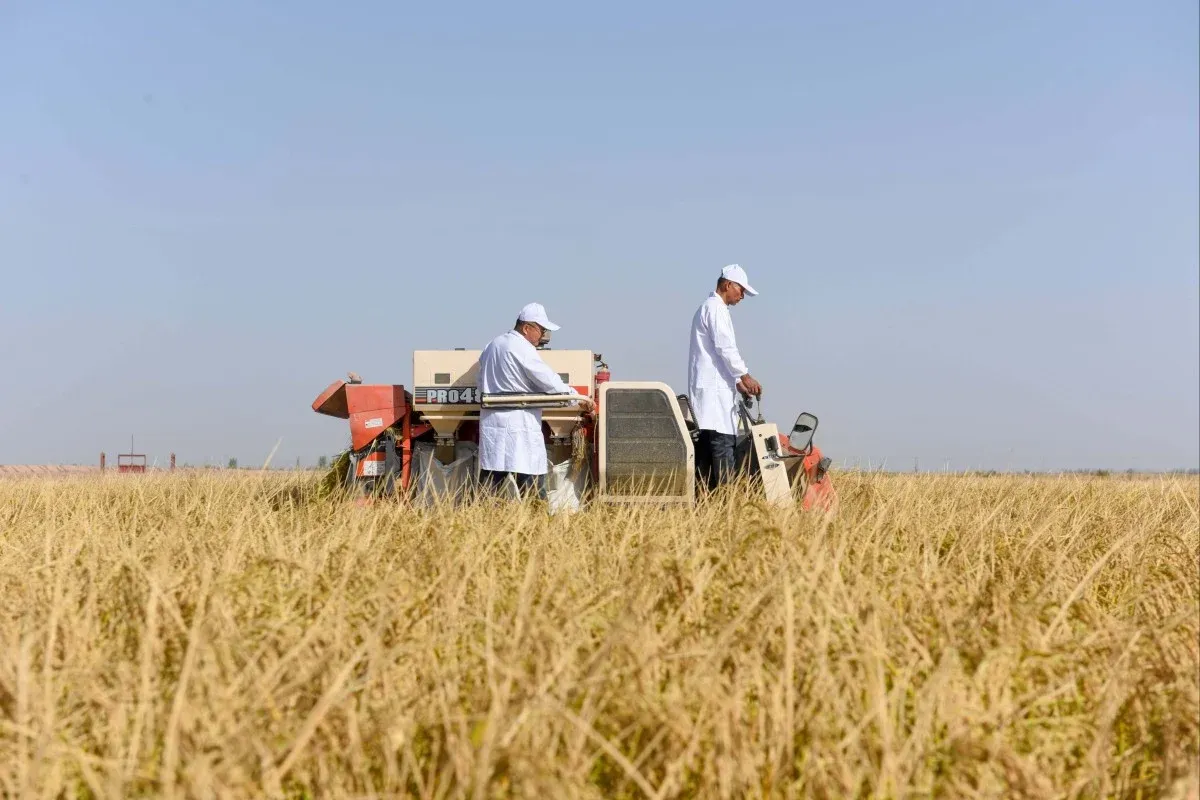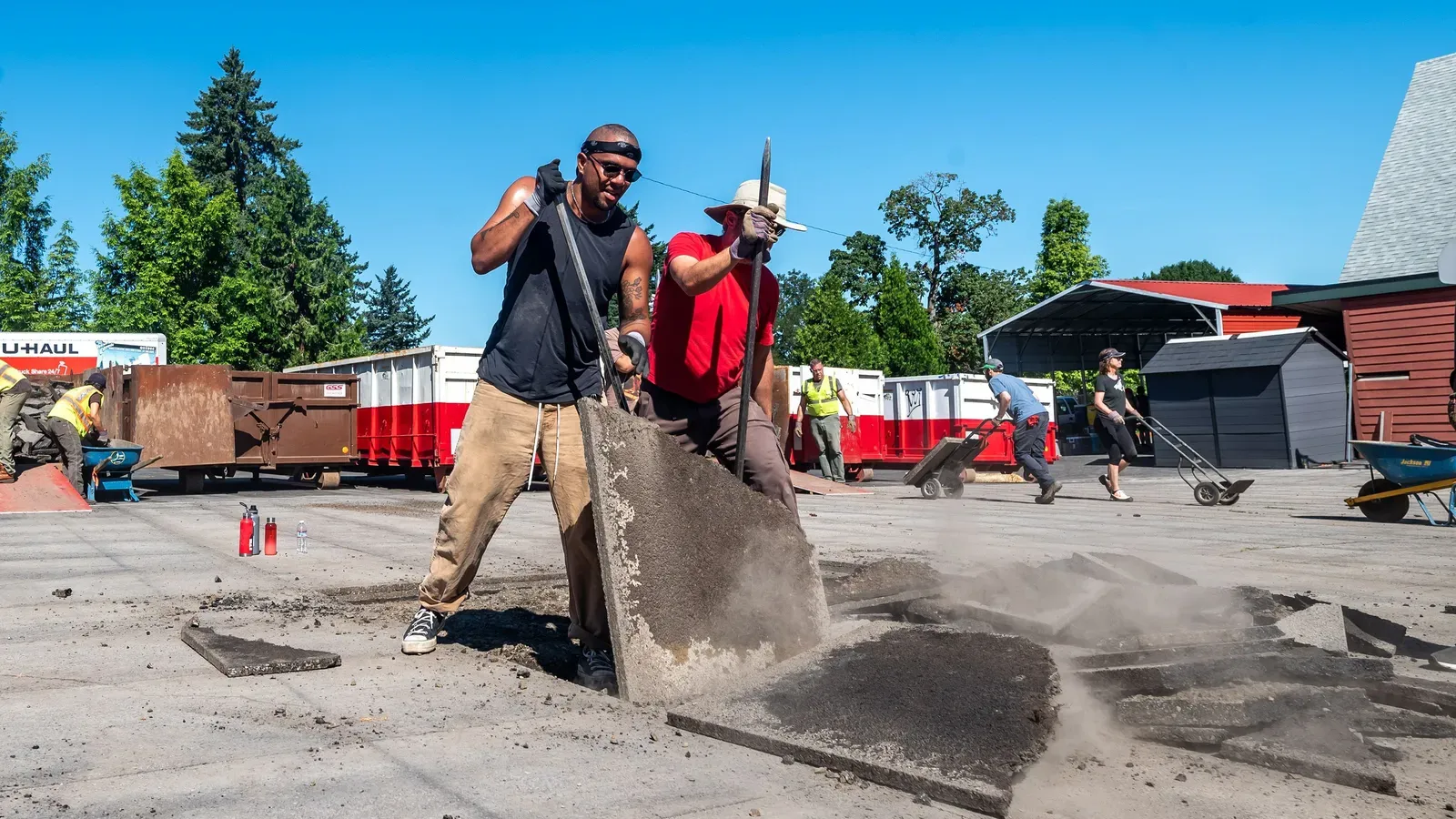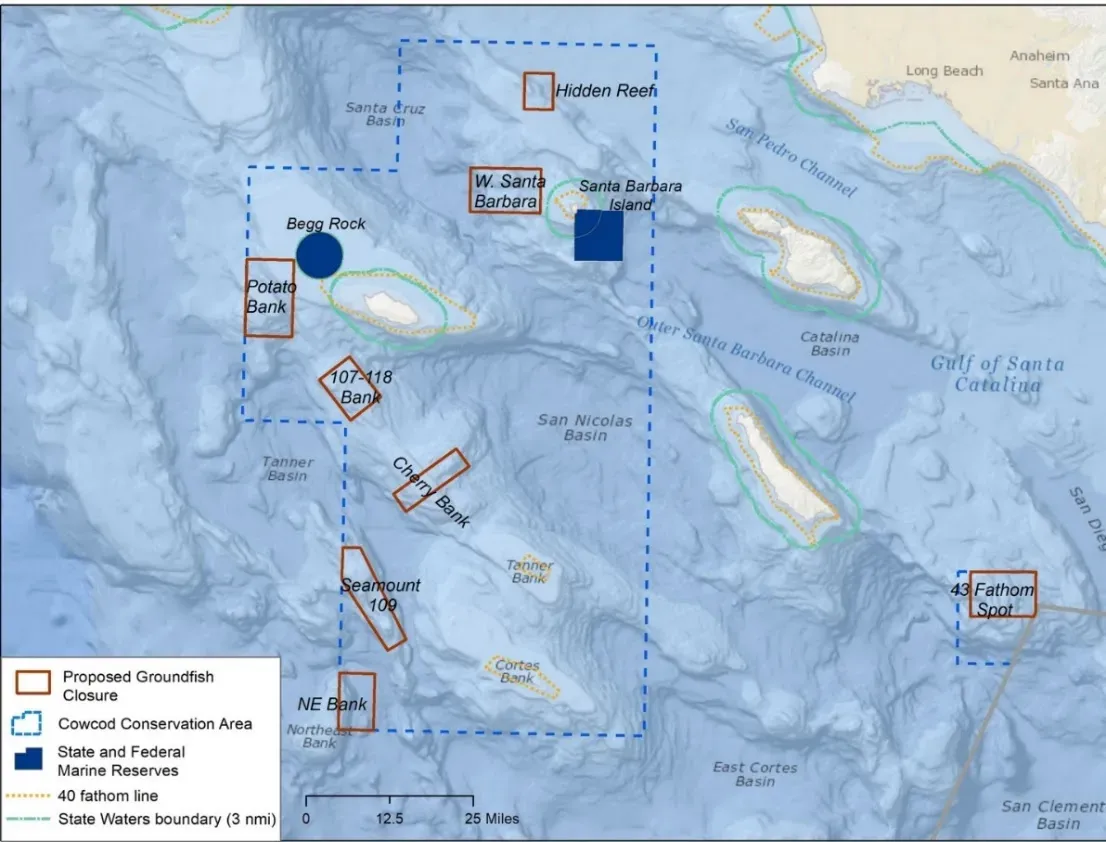This is our regular round up of stories of progress from around the world. If you'd like to join the 55,000 people who get this in their inbox every week, you can subscribe for free below.
Good news for people
The WHO's South-East Asia region, home to two billion people, has a new report out, highlighting an extraordinary list of accomplishments from the last decade. Between 2014 and 2023, the region eliminated neonatal tetanus and saw the highest reduction in maternal mortality in the world, as well as the fastest decline in tobacco use. Two countries eliminated malaria, two eliminated trachoma, three eliminated rubella and measles, four eliminated lymphatic filariasis, four achieved hepatitis B control, and the Maldives and Bangladesh became the first countries in the world to eliminate leprosy and visceral leishmaniasis, respectively.
Greece has become the first Christian Orthodox-majority country to legalise same-sex marriage. Same-sex couples will now also be legally allowed to adopt children, after Parliament voted 176-76 in favour on the 15th of February. 'The reform makes the lives of our fellow citizens better, without taking away anything from the lives of the many.' BBC
In 2005, Burundi embarked on a mission to ensure that all children, especially girls, had access to quality education. The results have been remarkable: primary school enrolment has increased by 58%, high school enrolment has surged from 32% in 2010 to 40.6% today, and the average number of years of schooling has increased from 6.4 to 7.6 years. World Bank
Mozambique's 2023 Demographic and Health Survey report contains some good news: child mortality is down from 97 to 60 per 1,000 live births since 2011, neonatal mortality has decreased from 30 to 24 per 1,000 live births in the same period, and maternal mortality has improved from 532 deaths per 100,000 live births in 2000 to 127 in 2020. WHO
The Biden Administration just announced $5.8 billion in funding that will go out to every state and territory to help fix water infrastructure. The funding will be used to clean drinking water, improve wastewater and sanitation, remove contaminants like forever chemicals, and replace lead pipes. CNN
In a vast wasteland in Inner Mongolia, Chinese scientists have found a way to turn huge swathes of saline-alkaline land into fertile fields. Their simple technique reduces soil salt content by 36% and increases crop yields by 30.5%. Farmers in the Netherlands are also taking on soil salinity, with some amazing results.

Germany has become the ninth country to legalise recreational use of cannabis. Many more countries allow its medical use as a painkiller. The law in Germany now allows for the cultivating of up to three plants for private consumption and owning up to 25 grams of cannabis. It remains illegal for minors, as does consuming it near schools and playgrounds. Reuters
Maybe the reason everyone is confused about the US economy is that very few people alive have experienced one that reverses inequality. Real wages are growing, women's wages are growing faster than men's, young people's wages are growing faster than old people's, and low-income wages are growing faster than high-income wages. Derek Thompson
Remember how US national media provided wall-to-wall coverage of San Francisco's 'doom loop'? Amazingly, none of those same outlets is reporting that property crime is down 31%, and violent crime is down 11%, from January last year. Compared to January 2018-2020, property crime and violent crime are now down by 40% and 24%, respectively. SF.gov
Numerous cities around the world, from the US and Canada to China, France, Belgium, and Australia, are removing unnecessary stretches of concrete and asphalt, allowing nature to take hold in their place. The idea of depaving (also known as desealing) is a simple one—replace as much concrete, asphalt, and other forms of hard landscaping as possible with plants and soil. BBC

More good news you didn't hear about
What you're actually supposed to do with a billion dollars. It looks like Dublin is going to be the next place to ban cars from its city centre. Italy, home of the mafia, is now one of Europe's safest countries. Nepal just passed a law restricting trans fats, following the leads of Thailand, India, Sri Lanka and Bangladesh. The Biden administration has now cancelled student debt for nearly 3.9 million people. Connecticut will cancel medical debt for 250,000 residents this year, the first state to provide this type of relief. How Mexico's feminists won their fight for reproductive rights. In a major step forward for the labour movement, Michigan just repealed its anti-union 'right to work' law, the first US state to overturn the law in nearly 60 years. Slovenia has seen cases of cervical cancer drop by almost half over the last 20 years. The hottest trend in American cities? Changing zoning rules to allow more housing. Notre Dame’s new spire unveiled, complete with golden rooster.

Good news for the planet
The European Parliament has adopted a law to restore 20% of EU’s land and sea. Under the law, countries must restore at least 30% of habitats in poor condition by 2030, 60% by 2040, and 90% by 2050. Member states will also have to restore at least 25,000 km of rivers to be free-flowing rivers and ensure there is no net loss in the total national area of urban green space and of urban tree canopy cover.
The Terai Arc Landscape initiative, Nepal’s pioneering landscape-level ecosystem restoration project, has led the restoration of 668 km2 of forest and nearly tripled the population of the endangered Bengal tiger. It's just been honoured as a UN World Restoration Flagship, one of the seven best examples of ecosystem restoration around the world.
The Biden administration, governors of Oregon and Washington, and the leaders of four Columbia River Basin tribes have formally launched a $1 billion plan to help recover depleted salmon populations in what was once the world’s greatest salmon-producing river system. AP
This signing ceremony is a historic moment, not just for the tribes, but also for the US government and all Americans in the Pacific Northwest. My heart is big today.
Corinne Sams, Confederated Tribes of the Umatilla Indian Reservation

In 2015, McDonald’s—one of the world’s largest and most iconic fast food chains—agreed to switch 100% of the eggs that it purchases to cage-free in the United States by 2025. The Humane Society just revealed that they reached that goal early, at the end of 2023. This is a big deal—McDonald’s purchases nearly 2 billion eggs each year for its US locations.
French company Carbios says it has commissioned an engineering firm to construct the world’s first biological recycling plant for PET plastic in eastern France. The company’s technology is among the first to offer full circularity for PET, and it claims it will be able to extend its enzymatic approach to many different types of plastic. Recycling Today
During the United State's early colonial history, huge areas of woodland were razed for agriculture and housing, but this trend began to reverse around a century ago. Such large expanses have since been reforested in the eastern United States—enough trees sprouting back to cover an area larger than England—that it has helped stall the effect of global heating. Guardian
Twenty years ago, officials closed around 12,000 km2 of ocean waters off Southern California due to overfishing. Since then, nearly all species have achieved full recovery, and the area has been reopened to non-commercial fishing, with some crucial areas still conserved. 'If you leave Mother Nature alone, things can come back and can be more resilient than even we expect.' Santa Barbara Independent

The EU has upgraded its laws to combat environmental crime more effectively. The new legislation enables criminal prosecution for environmentally-damaging conduct, standardizes penalties—increasing prison sentences for individuals and setting fixed fines for companies—and expands the list of environmental offences. Member states have two years to adopt it into their national laws. EU Greens
The EU has agreed to set stricter limits on the toxic particles and dangerous gases that dirty its air. The new rules slash the yearly limits for fine particulates known as PM2.5 from 25 µg/m³ to 10 µg/m³, and for nitrogen dioxide, a gas that hurts the lungs, from 40 µg/m³ to 20 µg/m³. 'This is a major step forward for people’s health. It is a once-in-a-generation chance to improve air quality.' Guardian
England has an ambitious new biodiversity credit scheme that will force new road and housebuilding projects to benefit nature rather than damage it. Developers will need to deliver a Biodiversity Net Gain of 10%, meaning if a woodland is destroyed by a road, another needs to be recreated either on site or elsewhere. Guardian

Music for those who will listen
Belgium becomes the first country in Europe to recognise ecocide as a crime. Environmentalists celebrate the surrender of the last offshore oil permits in British Columbia, a victory decades in the making. Crocodiles are thriving once again in the rivers and wetlands of Costa Rica. Fin whales return to the waters off New York and New Jersey. Earlier this month, as relentless rains pounded Los Angeles, the city’s sponge infrastructure helped gather 8.6 billion gallons of water. Hats off to the people behind Kenya's largest-ever rhino relocation. California just conserved a 27,000-acre parcel of land on its Central Coast, and the Nature Conservancy just bought an 8,000-acre tract at the confluence of the Alabama and Tombigbee Rivers. The EPA will award $4.6 billion to states and cities this year to implement local climate action plans. Say hello to green roads. Utah is about to become the biggest no-kill state in the United States. The population of common cranes, the UK’s tallest bird, is the highest since their reintroduction in 1979. For the first time in a century, the Pilliga Forest, the largest native forest west of the Great Dividing Range in Australia, is crawling with native animals.

Alright, that's a wrap from me, thanks for reading, I'll see you next week.
With love,
Gus


